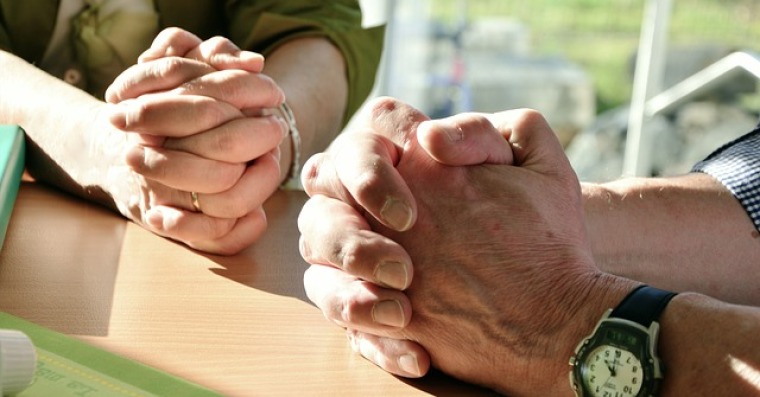Survey: 2 out of 3 Christians say they have experienced spiritual abuse

Two out of three Christian respondents of a new online survey have said that they had personally experienced spiritual abuse.
The study, conducted by academics from the University of Bournemouth in England on behalf of the Churches' Child Protection Advisory Service (CCPAS), has found that 1,002 out of 1,591 Christian respondents say that they have been subjected to coercion or manipulation in a religious context.
Dr. Lisa Oakley from the University of Bournemouth stated in the report that the key characteristics of spiritual abuse are "coercion and control, manipulation and pressuring of individuals, control through the misuse of religious texts and scripture and providing a 'divine' rationale for behaviour."
The report, however, acknowledges that definitions of spiritual abuse are not clear-cut, and suggests that the lack of clarity makes it difficult to respond appropriately to victims within the Church.
Seventy-two percent of the respondents said that they were "confident" that they know the definition of spiritual abuse.
As many as 62 percent were confident that they could respond effectively to a disclosure of spiritual abuse, with understanding and empathy, but most said that Churches and Christian organizations need to create clearer policies to address the problem.
Only 33 percent said that their church or Christian organization had a policy that addresses spiritual abuse, and only 24 percent received any training on the issue.
The online survey was promoted by CCPAS through social media, and supporter databases in January last year.
Most of the respondents belong to Anglican, Baptist, Independent, and Pentecostal denominations. About 17 percent were Quakers, while some identified as Roman Catholics and Methodists.
Justin Humphreys, executive director at CCPAS and co-author of the research, clarified that the respondents do not need to consider themselves as victims of spiritual abuse in order to take part in the survey. He further noted that survivors of abuse were not asked to share their story although some of them did.
"Growing awareness around this issue has meant it is now being recognised, but defining what it is and what it isn't needs further careful and considered work to be done," Humphreys said, according to Church Times.
"We owe this to those that have suffered spiritual abuse and we owe it to those involved in the wider Christian community to work constructively towards creating safer places for all," he added.
The study concluded that clearer policies and a greater understanding of the characteristics of spiritual abuse are needed to address the problem, and that church leaders should be provided with better training on the subject.
"Findings indicate the need to develop a fuller understanding of this very real experience, to assist in developing effective responses and help develop safer and healthier cultures across the Christian community," CCPAS said.
 Christians don't have to affirm transgenderism, but they can’t express that view at work: tribunal
Christians don't have to affirm transgenderism, but they can’t express that view at work: tribunal Archaeology discovery: Medieval Christian prayer beads found on Holy Island
Archaeology discovery: Medieval Christian prayer beads found on Holy Island Presbyterian Church in America votes to leave National Association of Evangelicals
Presbyterian Church in America votes to leave National Association of Evangelicals Over 50 killed in 'vile and satanic' attack at Nigerian church on Pentecost Sunday
Over 50 killed in 'vile and satanic' attack at Nigerian church on Pentecost Sunday Ukrainian Orthodox Church severs ties with Moscow over Patriarch Kirill's support for Putin's war
Ukrainian Orthodox Church severs ties with Moscow over Patriarch Kirill's support for Putin's war Islamic State kills 20 Nigerian Christians as revenge for US airstrike
Islamic State kills 20 Nigerian Christians as revenge for US airstrike Man who served 33 years in prison for murder leads inmates to Christ
Man who served 33 years in prison for murder leads inmates to Christ


 Nigerian student beaten to death, body burned over ‘blasphemous’ WhatsApp message
Nigerian student beaten to death, body burned over ‘blasphemous’ WhatsApp message 'A new low': World reacts after Hong Kong arrests 90-year-old Cardinal Joseph Zen
'A new low': World reacts after Hong Kong arrests 90-year-old Cardinal Joseph Zen Iran sentences Christian man to 10 years in prison for hosting house church worship gathering
Iran sentences Christian man to 10 years in prison for hosting house church worship gathering French Guyana: Pastor shot dead, church set on fire after meeting delegation of Evangelicals
French Guyana: Pastor shot dead, church set on fire after meeting delegation of Evangelicals ‘Talking Jesus’ report finds only 6% of UK adults identify as practicing Christians
‘Talking Jesus’ report finds only 6% of UK adults identify as practicing Christians Mission Eurasia ministry center blown up in Ukraine, hundreds of Bibles destroyed: 'God will provide'
Mission Eurasia ministry center blown up in Ukraine, hundreds of Bibles destroyed: 'God will provide' Church holds service for first time after ISIS desecrated it 8 years ago
Church holds service for first time after ISIS desecrated it 8 years ago Burger King apologizes for 'offensive campaign' using Jesus' words at the Last Supper
Burger King apologizes for 'offensive campaign' using Jesus' words at the Last Supper Uganda: Muslims abduct teacher, burn him inside mosque for praying in Christ’s name
Uganda: Muslims abduct teacher, burn him inside mosque for praying in Christ’s name